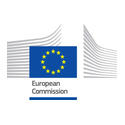In short
Across Europe, there are wide variations in health and well-being. The societal burden of these health inequalities is high, and leveraging evidence to achieve better outcomes is a priority. This project explores how health data in population registers, administrative registers, vital statistics and scientific journals are used by policy makers, health care providers, and community managers for decision-making.
Project description
There is current momentum for a stronger health information strategy among European countries. The BAHCI project addresses the use of health data and evidence by key decision-makers, with a focus on knowledge translation and associated health outcomes.
An essential element of the BAHCI project is the development of the Health Information (HI)-Impact Index to monitor the availability, dissemination and use of evidence based data on a list of 30-40 items. This tool will draw on the results of a broad DELPHI consultation amongst European public health professionals and policy makers.
A DELPHI is an iterative consensus process. Participants provide comments on a series of questions, which are refined by priority rankings over the course of several rounds, that take into consideration the responses of others within the panel. The purpose of this exercise will be to identify a core list of criteria that reflect:
- Health information and evidence quality;
- Health information system responsiveness;
- Stakeholder engagement and the use of evidence in health policy and practice;
- Health knowledge integration in civil society and across sectors.
After the pilot phase, the HI-Impact Index could be used by European public health agencies to evaluate the health and societal impact of their products and services overall, or in specific health areas (such as maternal and child health, injury prevention, or chronic disease surveillance). In a second stage, we will test associations with publicly available health outcomes indicators.
This research contributes to broader goals of better health system performance, and more efficient health interventions at national, regional and local level.
Results
IANPHI (International Association of National Public Health Institutes) — Recognition of success 2020 award
Sciensano's project investigator(s):
Service(s) working on this project
Partners




